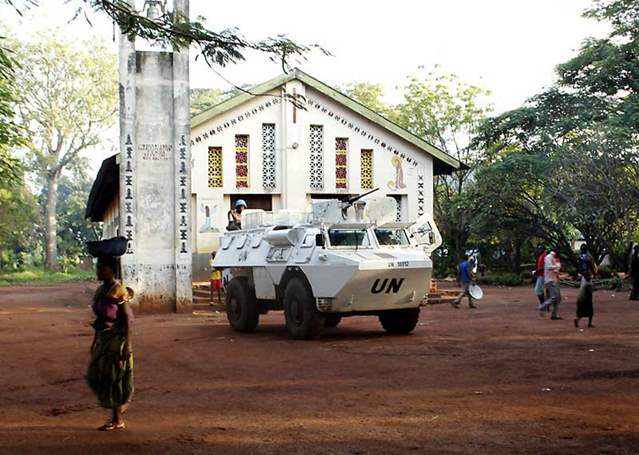Overview
The UN was founded after the Second World War by 51 countries never wanting to see the horrors of war and holocaust again. Over the last 70 years, UN membership and relevance has grown, and it now has 193 member states. It is the world’s largest and most important international organization.
The UN is independent and universal. It is the only forum in the world where peace and security, human rights and development are debated by all countries in the world.
Since 1964 Amnesty has had special consultative status at the UN, which has allowed us to shape crucial developments in human rights, including:
• The adoption of key UN Conventions. Such as against Torture and Disappearances and, curbing the arms trade.
• Optional Protocols to human rights treaties for the abolition of the death penalty and to keep children out of armed forces.
• The establishment of national mechanisms to prevent torture and to allow people to make complaints against their governments for violations of their rights.
• The creation of a High Commissioner for Human Rights the Human Rights Council and its Universal Periodic Review.
• The establishment of Special Procedure mandates on issues such as human rights defenders, the elimination of discrimination against women, counterterrorism and human rights and business and human rights.
• The adoption of resolutions such as the almost unanimous halt to the death penalty and the protection of civilians in crisis situations.
• The adoption of the UN Declarations on Enforced Disappearance, on Human Rights Defenders and on Human Rights Education and Training.

Context
‘Freedom from fear and from want’
This has been the UN’s rallying cry for the past seven decades. Its work is based on three pillars: the protection of human rights; maintaining peace and security; and promoting economic and social development.
One of the UN’s first ground-breaking acts was to draw up the Universal Declaration of Human Rights in 1948. Setting out the basic principles at the very heart of the human rights movement, it has inspired international laws and institutions that have directly improved the lives of countless people around the world.
Since then there have been many UN human rights conventions and declarations, shaping a system of international law and standards that protects us all and promotes our rights: ending racial discrimination and discrimination against women; banning torture and genocide; protecting the rights of children, people with disabilities, refugees, migrants, internally displaced people, minorities, human rights defenders, Indigenous Peoples; regulating the arms trade, and promoting the abolition of the death penalty.
What Amnesty is calling for
We can create a world where every one of us enjoys every human right laid out in the Universal Declaration of Human Rights. At the UN Amnesty pushes for:
• Universal ratification and implementation of human rights treaties and standards.
• UN bodies to be more responsive to human rights and humanitarian crisis.
• The adoption of treaties to address new challenges such as business and human rights or our right to privacy.
• Institutional reform to achieve a stronger and more effective UN for the promotion and protection of human rights.
The issue in detail
How the UN works
The main body of the UN, where every one of the 193 Member States has a vote. It meets from September to December every year and adopts around 300 resolutions annually on a broad range of issues, including human rights.
Created in 2006 with 47 Member States. It meets three times a year and can address the full spectrum of human rights issues and draft new human rights standards. It can set-up commissions of inquiry, dispatch fact-finding missions and make recommendations to States. The Council also reviews how well each UN Member State is fulfilling its human rights obligations by a process called ‘Universal Periodic Review’.
This is the most powerful UN body, with a mandate to maintain international peace and security. It has 15 members, including five permanent and 10 elected. The Security Council can create peacekeeping operations, impose sanctions or arms embargoes, instruct human rights investigations, authorize the use of force, create international criminal tribunals and refer cases to the International Criminal Court.
These are 10 committees of independent human rights experts. Nine monitor whether States are doing what they should in relation to the international human rights treaties they have signed up to. One specifically monitors places where people have been deprived of their freedom.
Despite the name, these are actually people – independent human rights experts or groups of experts monitoring and advising on a particular country or issue on behalf of the Human Rights Council. There are 53 Special Procedures including Special Rapporteurs, Independent Experts and Working Groups.
Universal Periodic Review (UPR)
The process by which the Human Rights Council reviews how well each UN Member State is fulfilling its human rights obligations. Civil society groups and organizations play a key role in the UPR by providing information about human rights in countries under review and suggesting measures to address challenges.
Secretariat and Office of the High Commissioner for Human Rights (OHCHR)
The UN Secretariat is the civil service of the United Nations. It is led by the UN Secretary-General.
The OHCHR is part of the UN Secretariat and is led by the UN High Commissioner for Human Rights, a position created by the General Assembly in 1993. The OHCHR leads the implementation of the UN human rights programme. Its role includes carrying out research, providing governments and national human rights institutions with technical expertise, capacity building and human rights education.
Where does my country stand on UN treaties?

